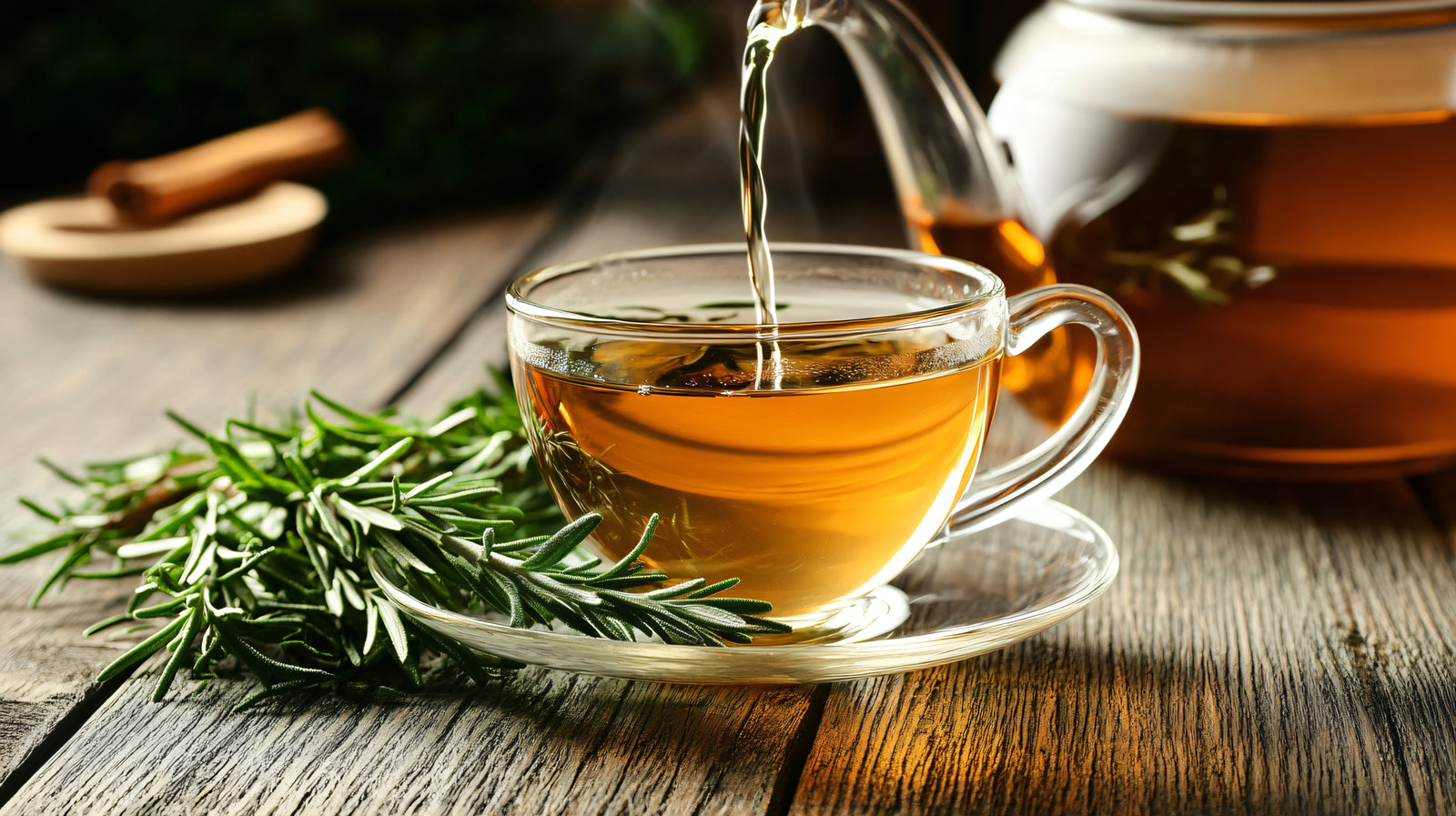Rosemary is not only a fragrant spice

Rosemary is an herb whose properties were first appreciated by the inhabitants of Mediterranean countries. Rosemary was considered by them not only as a medicinal plant, but also as a symbol of love and fidelity. During the wedding ceremony, brides often wore a wreath of rosemary on their heads, and wedding guests received a sprig of this plant as a sign of love and loyalty.
Health benefits of rosemary tea
Rosemary tea contains rosmarinic and carnosic acid, compounds with antioxidant, anti-inflammatory and antimicrobial properties.
Rosemary tea may help lower high blood sugar levels by exerting insulin-like effects and boosting the absorption of glucose into muscle cells.
Rosemary tea may reduce anxiety, boost mood and improve concentration and memory.
Rosemary tea may protect the health of the brain — both from injury and impairment from aging and neurodegenerative diseases. Rosemary can support learning and memory and reduce the symptoms of mild cognitive impairment, which herald the development of dementia.
Rosemary tea may help protect your eyesight as you age by slowing the progression and severity of conditions like cataracts and age-related macular degeneration.
Rosemary has a relaxing effect and it is used in digestive tract ailments. It relieves stomach pain, supports the treatment of intestinal and gallbladder diseases (it has a choleretic and choleretic effect). And thanks to the presence of bitterness, it stimulates the secretion of the stomach and improves digestion.
Rosemary has liver cleansing properties. It not only contributes to detoxification, but can also protect liver cells from damage caused by some drugs.






